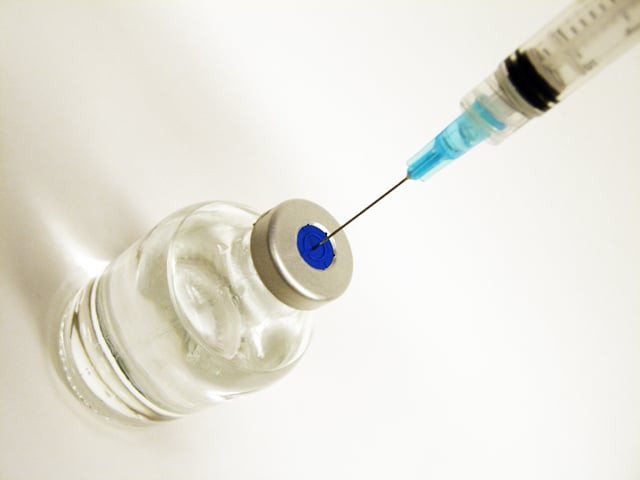Free of cost anti-pneumococcal vaccines: EPI misses the target for third time
DHO Islamabad says the programme is awaiting WHO certificate.

“The vaccines were scheduled to be introduced in March this year but once again we have failed to achieve the set goals and it is embarrassing for us,” says an EPI official. PHOTO: FILE
The Expanded Programme on Immunisation (EPI) has missed for the third time the deadline to fulfill its international commitment to introduce free of cost anti-pneumonia vaccines in Islamabad.
“The vaccines were scheduled to be introduced in March this year but once again we have failed to achieve the set goals and it is embarrassing for us,” said an EPI official, wishing not to be named.
The official said reason behind this impediment was that the primary focus of the government remained on anti-polio campaigns and the recent out breaks of measles in some parts of the country.
“All the vaccine preventable diseases among children under the age of five should be given equal attention. Pneumonia is one of the biggest killers of children and should not be ignored,” said the official.
“Sadly in Pakistan, there is a trend of fighting against the disease when it becomes epidemic and starts killing people,” said the official.
He also expressed concern over the absence of a surveillance system at the federal level for tracking pneumonia cases reported in public and private hospitals on a daily basis.
Meanwhile, Dr Qamarul Hassan, an official at World Health Organisation (WHO), said that the WHO was going to verify the programmatic readiness of the Capital Development Authority (CDA) and the Islamabad Capital Territory (ICT) for introducing pneumococcal vaccine (PCV10) next week. If the findings were found positive, it’s expected that the new vaccine may be introduced by May.
When contacted, District Health Officer (DHO), Islamabad, Dr Muhammad Azhar, said that the ICT has fulfilled all the requirements including trainings to vaccinators and was waiting to get an assessment certificate from the WHO.
“The moment the WHO issues the certificate, we will send a request to the National Institute of Health (NIH) for the provision of pneumococcal vaccines,” he said.
He said that around 19 to 21 people have been trained for the ICT and over 30,000 children under the age of one will be vaccinated against pneumonia every year.
Dr Tabish Hazir, head of pediatrics departmental in the Children’s Hospital at the Pakistan Institute of Medical Sciences (Pims), said that there were always major reasons behind such delays which were needed to be highlighted.
He said that the ICT health department was facing numerous issues including the shortage of vaccinators. “Throughout the year, they remained occupied for anti-polio campaigns and now they are on their toes to tackle the recent out breaks of measles.”
He said that there was a dire need to introduce anti-pneumonia vaccines as it would help control over 19 per cent deaths, in children, who die every year due to the bacterial pneumonia.
Published in The Express Tribune, April 16th, 2013.



















COMMENTS
Comments are moderated and generally will be posted if they are on-topic and not abusive.
For more information, please see our Comments FAQ